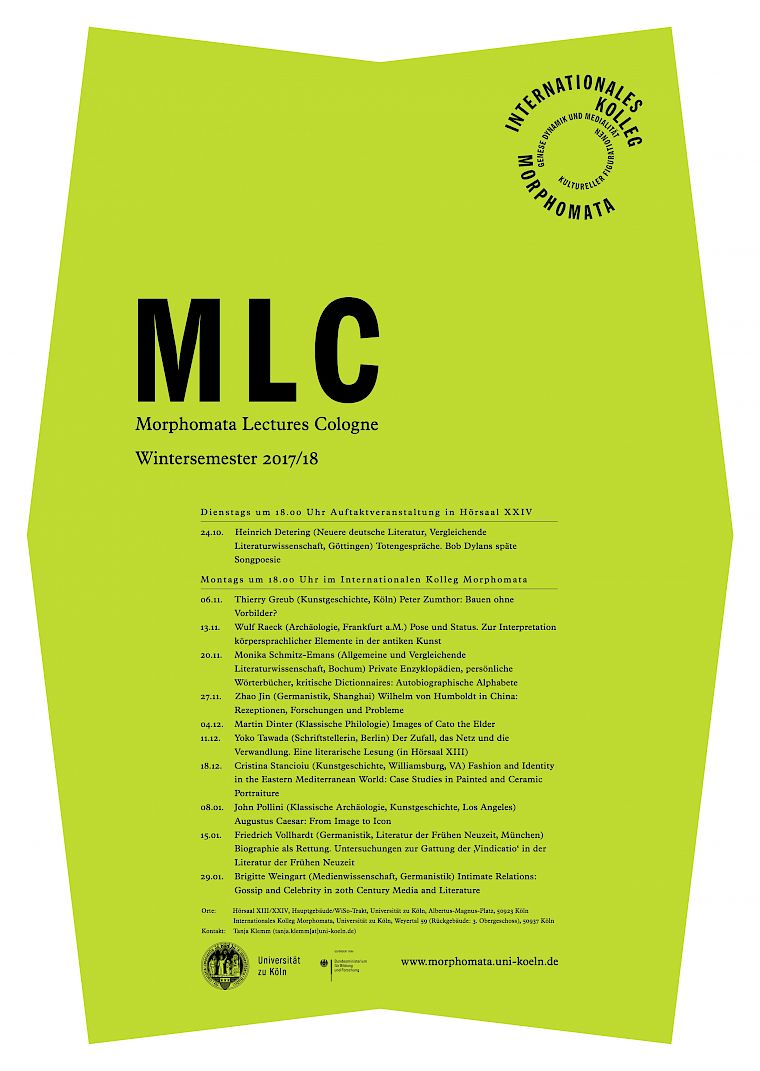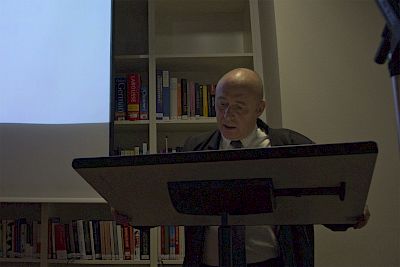The talk will be held in German.
Biography as Rehabilitation. Studies in early modern vindications (›Rettungen‹)
G. E. Lessing‘s vindications (Rettungen), or rehabilitations, of heretics and oppositional figures are a characteristic expression of his attitude towards individual freedom, and they embody both − its offensive and defensive modes. They simultaneously attack or criticize an authority or attitude which he perceives as oppressive, and defend the object of this oppression. Many of his writings belong in a wider sense to this category. But the vindication as a literary form is an apology for a specific historical individual, defending him against his detractors and upholding the right of all individuals to freedom of thought and expression: the form is based on biography. The last of Lessing‘s vindications on religious topics, published in 1754, is the Vindication of Hieronymus Cardanus, in which he turns his attention to the wider sphere of comparative religion; it marks the culmination of his studies of heretics and critics of religion before and during his stay in Wittenberg – and his interest in the life oft he Renaissance philosopher, the author of a famous autobiography: De vita propria. The essay on Cardano is the most substantial of the early vindications, both because it extends the discussion beyond the Lutheran tradition to world religion in general, and because it foreshadows the religious preoccupations of Lessing‘s later years.
Response: Wilhelm Voßkamp (Köln)

